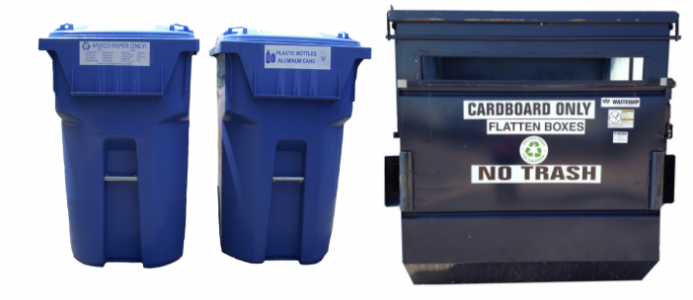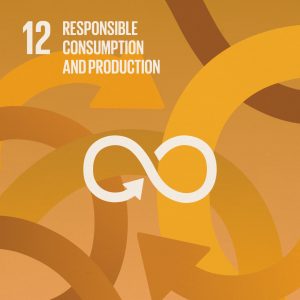Post contributed by Gabriel Harrison, Student Employee, Waste Reduction and Recycling Department
When I first started at Auburn University, my focus was on going to class, studying and socializing. I didn’t spend much time thinking about recycling. We didn’t have a recycling program at my house when I was growing up, so I wasn’t accustomed to using recycling bins. That’s no longer the case now that I’m on Auburn’s campus with recycling bins everywhere. And, now I work for the Waste Reduction and Recycling Department – the very department that provides waste and recycling services to the university community.
I became aware of how much recycling I was not doing and how much more I could be doing. One of the department’s goals is to make recycling accessible and convenient. Did you know there are hundreds of labeled recycling bins inside and outside campus buildings? All you have to do is put mixed paper in the paper recycling bins, and plastic bottles, aluminum cans and steel/tin cans in the mixed containers recycling bins.
One of my tasks is to inspect recycling bins. Placing incorrect items in the recycling bin is called contamination. Take a moment to separate recyclables from trash because putting garbage or items that cannot be recycled in the recycling bins may result in the entire container being treated as garbage. When this happens the opportunity to recycle is wasted.
You can help by practicing the three R’s of waste management: reduce, reuse and recycle.
On average, each of us generates 4½ pounds of solid waste every day, which is about 1,650 pounds a year. Simple changes can make a difference in reducing the amount of waste we produce and promoting a cleaner, greener campus. Carry a refillable water bottle. Bring your own reusable shopping bags. Say no to plastic bags and plastic straws. Print on both sides of the paper. Never litter. Recycle.
Recycling turns materials that would otherwise become waste into valuable resources. Some of the benefits of recycling include conserving natural resources, saving energy, preventing pollution and reducing the amount of waste sent to landfills. I encourage students, staff, faculty and visitors to recycle when on campus.
Including one new item into your recycling routine will have a positive impact. Select something that you use frequently, like plastic sports drinks bottles, and challenge yourself to recycle them consistently. Do this and you’ll be on your way to making recycling part of your daily routine. Your effort will influence others to join you in incorporating environmentally-friendly behavior into their everyday lives.
When we combine our small actions, big things can be achieved.
Learn about the SDGs & AU and our contributions related to this post.






Good information. Great job, Gabe. Everyone recycle!